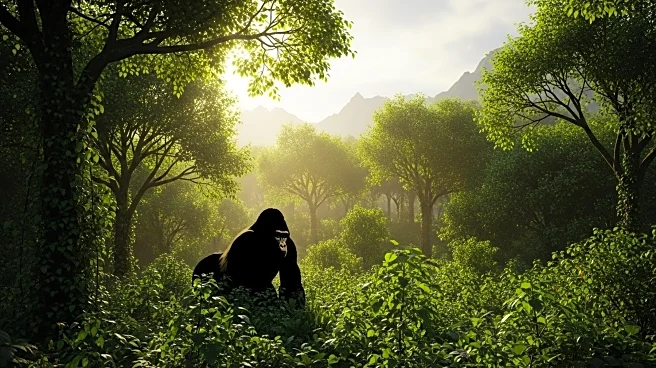What is the story about?
What's Happening?
Tourism is playing a crucial role in the conservation of Uganda's endangered mountain gorillas, helping to reduce poaching and habitat encroachment. The economic benefits from tourism have transformed poachers into conservationists and provided local communities with financial incentives to protect the gorillas. Tourists pay significant fees to see the gorillas in their natural habitat, with a portion of the revenue shared with local communities for development projects. This collaborative approach has contributed to the recovery of the gorilla population, which now exceeds 1,000 individuals.
Why It's Important?
The success of tourism-driven conservation efforts highlights the potential for sustainable tourism to support wildlife protection and community development. It demonstrates how economic incentives can align with conservation goals, fostering cooperation between local communities and wildlife authorities. The recovery of the mountain gorilla population is a positive example of how targeted conservation strategies can lead to significant improvements in the status of endangered species.
Beyond the Headlines
The transformation of poachers into conservationists reflects a broader cultural shift towards valuing wildlife and recognizing its importance to local economies. This change in mindset is crucial for long-term conservation success and can serve as a model for other regions facing similar challenges. The integration of tourism and conservation also raises questions about balancing economic development with environmental protection.














